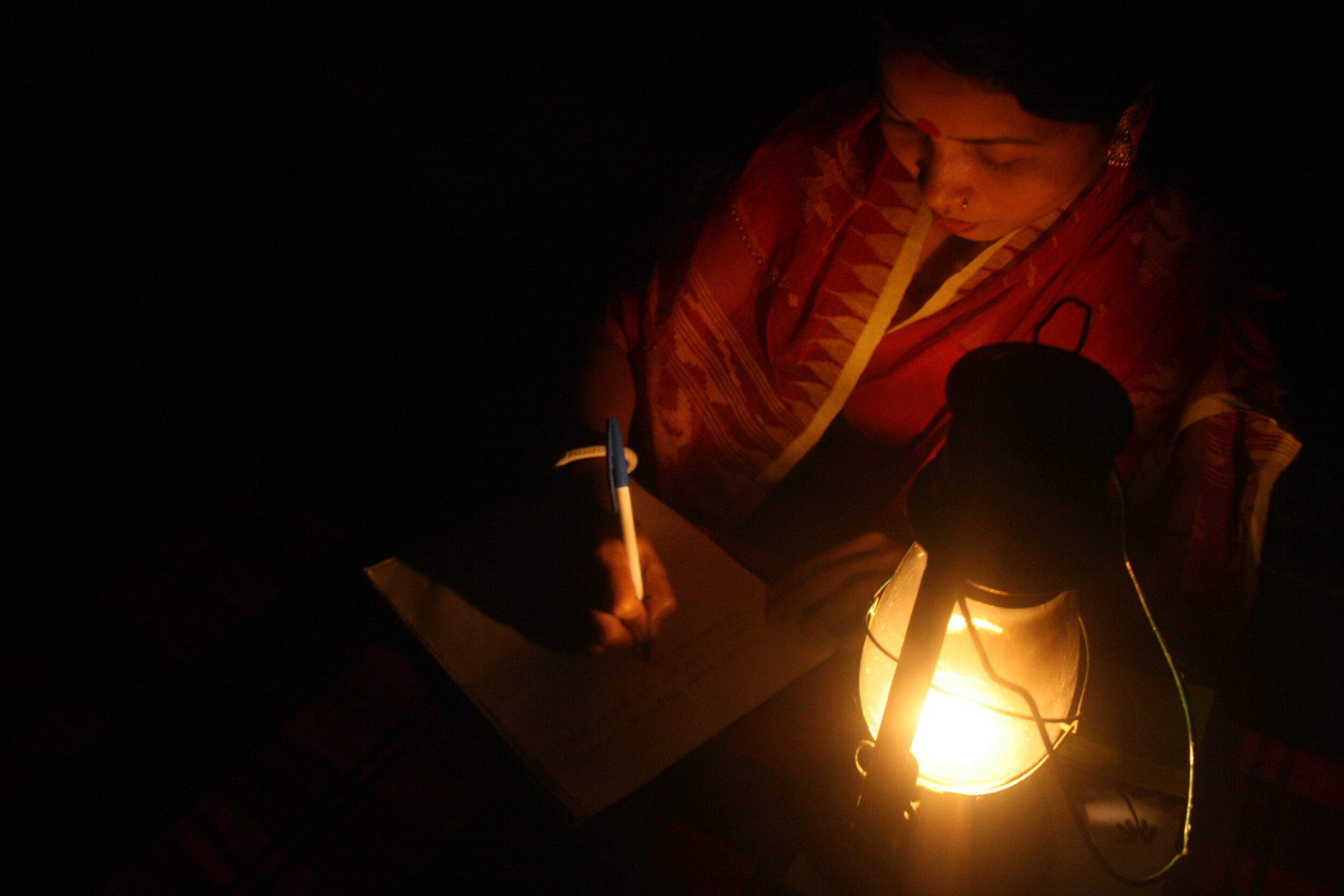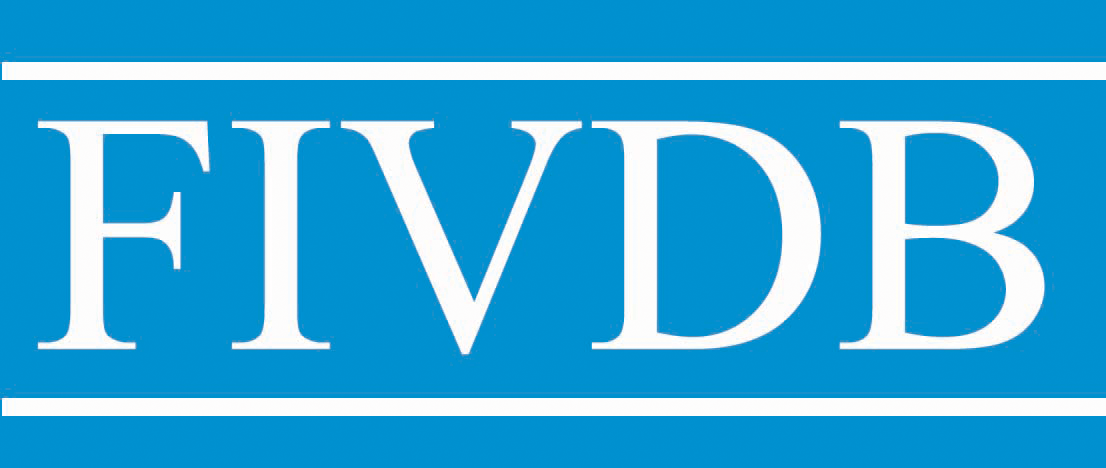
History of FIVDB
FIVDB was founded in 1979 by a group of development workers working for International Voluntary Services Inc. to work towards enhancement of quality of life of the disadvantaged people in the north-eastern region, in today’s Sylhet division. It went into operation in the fields in 1981, starting with a filed of 23 villages in the Sylhet Sadar thana. FIVDB’s history can be seen basically in two main contexts (a) the programme and its coverage within FIVDB and (b) the outreach programme. Both these reached the current stage through continuous experimentation, action and reflection to meet the need of time. The organisational and programmatic growth has also been greatly influenced by other development initiatives present and evolving in the surrounding context, the support and resources available for it and the limitations and constraints in the environment.
THE IVS PHASE
International Voluntary Services (IVS) like many other international NGO’s came to Bangladesh after the independence in the early 70s to assist in the rehabilitation work. The first initiative of IVS was centred in Comilla at the Bangladesh Academy of Rural Development (BARD). The IVS volunteers worked with the extension workers in the field laboratory areas on agricultural production and health and family planning. In 1974 at the wake of famine IVS was directed by the ministry of Local Government Rural Development and Cooperatives (LGRDC) to move to Sylhet and assist farmers in boosting crop production. IVS thus moved its operational base to Sylhet in mid 1974.
IVS volunteers along with their co-workers started working with the farmers and members of Krishok Samabay Samiti (KSS). The KSS’s (farmers co-operative) were formed by the then Integrated Rural Development Programme (IRDP). The idea of the co-operatives and rural development of IRDP was inspired from the famous ‘Comilla Model’ pioneered by BARD. The IRDP was the prime agency of government in promoting rural development in the country.
IVS also started working with three extension training institute in Sylhet. They were the Rural Development Training Institute (RDTI) of IRDP, Agricultural Training Institute (ATI) of the Agricultural Extension Department and Family Welfare Visitors Training Institute (FWVTI) of Health and Family Planning Directorate. Apart from the direct agriculture and health and family planning extension work, IVS also took the responsibility of providing field based training for the government extension workers from the three training institutes located in Sylhet. This project of IVS was called “Village Development and Training Programme” (VDTP). While there was appreciation for the work in the training institutes and related government departments the main donor USAID was not keen to support VDTP on a longish run.
In the wake of war of independence, some local initiatives came into being mainly to undertake relief, rehabilitation and reconstruction work. BRAC and Gonoshasthya Kendro pioneered work in the field of community development and health with a particular focus to address the needs of the poor and landless communities. While BRAC concentrated on raising critical consciousness and mobilisation of the communities using reflective non-formal education, developing health insurance scheme and promoting oral rehydration therapy the Ghonoshasthya Kendro developed and demonstrated low cost primary health interventions through training and mobilising women health cadres from rural areas. Some international operations like CARITAS, LWF/S, MCC, CUSO and CONCERN also started innovative programmes in agriculture production, income generation, health care, sanitation, nutrition and family planning. Some of these operations were gradually localised. The Quakers services indigenised into Gono Unnayan Prochesta, the CUSO spun off Proshika and Nijera Kori.
In Chittagong under the leadership of Professor Mohammed Yunus, Grameen Bank project successfully experimented with providing small amount of credit to poor people on social collateral in the villages around the University campus.
Evolution of FIVDB
Phase-1 (1981-82): Established in 1979, FIVDB, a national non-government development organisation has been in operation since 1981. The development programme is a replacement of the “Village Development and Training” Programme carried out by IVS in the three clusters of villages (23 villages) in Sadar thana of Sylhet district. Till 1982, the focus of FIVDB’s programme was on agriculture, nutrition and health extension. The work had a community approach; it primarily worked through existing government rural extension system and rural institutions with whom they worked. The community as a whole was the focus of work, intervention was exclusively supply side in nature and above all, the intention was that the impact of the supplied services would filter through the community, benefiting all including the poor.
Phase-II (1983-89): Although the earlier activities continued, in 1982, a major shift in emphasis occurred toward working with the rural poor. Two dominant approaches were directed to implement the integrated programme. A target group approach was adopted, defining the target group, signifying the rejection of trickle down of development in action, starting that far from being a homogeneous mass rural society was strongly differentiated, and to assist the poor one had to work directly with them.
The second approach introduced was the Functional Literacy. Alongside this, rural credit was given emphasis and development was regarded as a process of empowerment. Through an integrated programme of activities, FIVDB’s role was considered as a temporary facilitator for a sufficiently long period so that people’s capacity to continue the development process with a vastly reduced FIVDB’s presence was built up. The programme was carried out by the extension workers and small landless groups. New activities were added, more villages were covered and the number of staff members increased.
Phase-III (1990-97): The year 1990, was significant for FIVDB in terms of change and development. Continued development interventions helped FIVDB change its approach and strategy in 1990. The reassessed approach and strategy emphasised on capacity building of the poor, greater range of group development beyond the narrow group interest following a bottom up and more participatory process of development. The focus was on formation of people’s organisation, inter-village association and area federations. The major measures taken to ensure this included reformation of groups, recruitment and training of Village Volunteers, development of group development module, introduction of group development classes, training of group leaders and social workers. These changes boosted membership, development leadership and finally increased programme coverage to a large extent in a short period.
Change in Programme Policy: During 1989-90, FIVDB’s Health and Agriculture programmes also underwent major changes in their programme policies to support the people in developing capacities in order to sustain longer-term development. These changes were in line with FIVDB’s strategic changes.
In 1994, FIVDB also started redesigning its Child Education Programme introducing, an innovative, ‘active learning method’ alternative to the traditional method of learning. This is intended to generate enthusiasm among learners, to reduce drop out rate and to increase attendance in primary schools in FIVDB’s programme area.
Phase-IV (1998-Onward): In mid 1995 an evaluation was carried out and following this in 1996 and 1997 an organisational and management review was done. To bring greater efficiency the programme was reorganized following term based approach. There is now a senior management team. The core work is divided into four core programmes. The Integrated Financial Services Programme (IFSP) is group focused capacity building, savings mobilization, micro finance programme and the Livelihood Enhancement Programme (LEP) is a sectoral programme having among its large portfolio homestead based agriculture, livestock, poultry, duckery, fisheries, handicrafts, women’s development and community health. The Function Literacy Programme (FLP) provides adult functional literacy, post literacy and continuing education. The child education programme provides six years of child centred interactive primary education. The emphasis during this phase is on the delivery of specialised services efficiently, on national outreach and policy lobby and advocacy work.
Outreach Achievement:
a. Programme and Material
Since its inception, FIVDB has been continuously emphasising on national outreach programme in terms of training, materials and policy lobby and advocacy.
FIVDB has acquired reputation both nationally and internationally in the field of Functional Education. The Functional Education material developed by FIVDB’s specialisation unit is being used by some 300 organisations. Already 2.1 million adult men and women have completed the functional literacy course in the country and the method has been adapted in Bihar and Orissa in India in 1992 and recently in Yemen. In addition, the unit recently had involved itself in developing urban literacy material appropriate for urban slum people in collaboration with Plan International. A course and related material suitable for the urban slum dwellers has been developed by FIVDB’s Function Literacy Programme. FIVDB has also done the review, redesign and development of basic adult literacy course of Directorate of Non formal Education Programme of GoB in 2000 and 2001.
FIVDB has received different awards and recognition for its innovative work in non-formal education. This include the national literacy awards in 1996, 1997 and 1999, the Asian Cultural Centre for UNESCO award in 1995 for Continuing Education and Roby Kidd award to its Executive Director from International Council of Adult Education (ICAE).
In case of skill and human development, FIVDB has been offering 8 different courses (such as Project Planning Monitoring and Evaluation, Enterprise Development, Duck Husbandry, Horticulture Development, Functional Education etc.) for staff and beneficiaries of other organisations.
b. Policy lobby and Advocacy
Like other organisations, FIVDB has been actively involve in lobby and policy work related to policy reform and policy formulation mainly through its attachment to network such as ADAB, VHSS, NGO forum for water and sanitation, Centre for Policy Dialogue, Association of Land Reform and Development, Campaign for Popular Education (CAMPE) and as member of PROSHIKA’s Institute for Development Policy Analysis and Advocacy (IPDAA). FIVDB acted as convenor of the Social Summit NGO preparatory committee in Bangladesh and attended and lobbied in the preparatory committee and the summit at Copenhagen along with other NGO delegates from Asia, Africa, Latin America, Europe and North America.
|
|
Stage I (1980-82) |
Stage II (1982-89) |
Stage III (1990-1997 |
Stage IV (98-Beyond) |
|
Dominant |
Agriculture / Health |
Credit
and Functional |
Formation of people’s organisations |
Specialised programmes, National |
|
Mode of operation |
Community |
Target group based service delivery |
Social organisations and Awareness building |
Education Training Group Development Issue based lobby & advocacy |
|
Main actors |
FIVDB |
FIVDB |
FIVDB Social workers, village volunteers, federations NGO coalitions |
Specialised workers
|
|
Programmes focus |
Village community based work |
Small landless men and women’s groups |
Bigger village based organisation and inter-village associations and area federations. Networking and joint efforts |
Individual and group capacity building. Policy reform |
Table: Historical evolution of FIVDB
